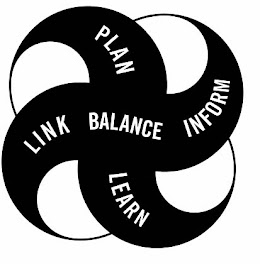Last week I was invited to be the guest on Hollis Polk's internet radio show, "Your Life, Your Relationships." As I prepared to talk about increasing our influence in personal life, I realized that the use of power in personal relationships is a deep and complex subject.
Influencing at Work
Usually, when teaching or coaching in a corporate or government setting, I encourage each person to be as influential as possible. Assuming that your intentions are at least somewhat on behalf of the organization and its customers, you want to be as influential as you can in carrying out your role.
In large systems, getting anything done relies on influencing skills combined with position power, intelligence, and leadership. One of my favorite things about influencing skills is that anyone can use them and be powerful.
Influencing in Personal Relationships
Influence also happens in relationships with family and friends. In personal life, the question of who gets his or her way is different from what happens at work. Where there are children or elders, the capacity of the participants is unequal. The nature of the family unit or community is that it exists for its own sake, not simply to accomplish external goals.
Within that context, there may be greater felt constraints on how we influence, as well as an overriding need for harmony.
The idea that we would consciously attempt to influence our family and friends might seem foreign, and even unethical. as if we were scheming against them. The idea that we would not be attempting to influence them is pretty far out also.
Of course we have influence within our close relationships. It may not work as well as we would like, and we might not admit it. Whether we like it or not, we influence just bybeing there. We can't not influence each other, so let's be conscious of how we do it.
Are You Playing Games?
Whoever has the communication skills to influence others is going to get his or her way more of the time than someone who doesn't. This can be aboveboard or it can be more devious.
In transactional analysis, maneuvers that discount someone or something are called "games," and are basically unethical ways to influence. Typically, they don't even accomplish the intended goal for the person who initiates them.
Ethical Influencing
Consider these three qualities that can make our influence more ethical - i.e., not scheming against our closest relations.
1. Concern for the good of all.
If it's genuine, then any outcome we have for ourselves will take others' needs into account.
2. Respect for each person's own version of reality and appropriate stage of development.
Even if my plan seems better for someone else than theirs, they get to decide for themselves. This, of course, has to be modified when the person is four years old or sometimes when he or she is incapacitated.
In general, people can be allowed to decide more for themselves than their close relations may want them to. Beware of power games that interfere with respecting the other person's point of view. When in doubt, consult with someone who is not a party to the issue.
3. Transparency.
If we withhold relevant information, or are not willing to say what our intention is, or try to get someone else to do our dirty work for us, we are setting up a negative payoff either sooner or later. It's a good self-test--would I be willing to share my thinking with the person I am trying to influence? If not, I may be up to something that I've rationalized to myself which is really underhanded.
If these three principles are honored, the rest is up to skill.
Are you good at conveying what you want so that others can hear and be motivated to support you?
Are you able to say no diplomatically and hear it with grace?
Have you invested enough in others' emotional bank accounts that they are willing to invest in yours?
As you step forward in 2012, make your family and friendships a source of cooperation and joy in your life by exerting your influence with ethics.



